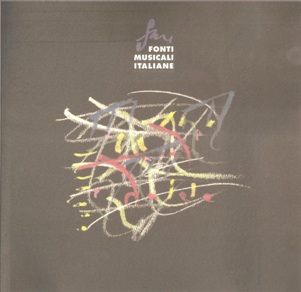Verso un thesaurus in materia di legislazione sui beni e le attività musicali: proposte di integrazione al TEsauro SEnato per l’Organizzazione dei documenti parlamentari
Abstract
L'articolo è incentrato sullo studio lessicale e terminologico di testi giuridici riguardanti la musica, quale nuova prospettiva di sviluppo del rapporto fra musicologia e scienze giuridiche; si ritiene infatti che il rafforzamento di un comune terreno d'indagine fra le due discipline, incidendo significativamente nelle scelte operate a livello istituzionale in merito alla tutela, alla gestione e alla promozione dei beni e delle attività musicali, possa contribuire all’instaurarsi di equilibri qualitativamente più soddisfacenti fra il legislatore e il patrimonio musicale.
La carenza di autonomia e la notevole disorganicità di trattamento legislativo patite dalla musica rispecchiano per certi versi la situazione dell'intero ordinamento giuridico italiano, le cui pletoriche dimensioni limitano fortemente la conoscibilità delle norme e la tutela del principio della certezza del diritto. Per tale complessa situazione le scienze giuridiche hanno guardato con favore all’informatica, per i vantaggi da essa offerti quanto alla conoscibilità delle leggi e al miglioramento della legislazione. Sono prese in esame le più importanti acquisizioni in merito al recupero, al trasferimento e al trattamento dell’informazione giuridica attraverso strumenti digitali, a partire dalle prime banche dati istituzionali progettate sul finire degli anni Sessanta per giungere all'attuale e sempre crescente disponibilità di risorse informative consentita dall'avvento della società dell'informazione e delle reti telematiche.
Poiché si ritiene che lo studio del linguaggio legislativo in materia di beni e attività musicali possa contribuire alla maggiore conoscibilità delle leggi e al miglioramento della legislazione, vengono proposte alcune possibili realizzazioni, utili sia in fase di redazione delle leggi, sia in fase di trattamento del testo giuridico, sia ancora in fase di recupero dell’informazione giuridica.
Quale esempio applicativo si propongono i risultati di un'analisi testuale condotta su testi legislativi riguardanti beni ed attività musicali emanati fra il 1998 e il 2001; si è infatti formulata l'ipotesi secondo la quale si può determinare lo stato di completezza della regolamentazione attinente alle attività e ai beni musicali a partire dalla quantità e dalla varietà di oggetti e fatti musicali individuati e riconosciuti dal lessico giuridico.
I termini musicali contemplati dai testi legislativi sono stati altresì posti in confronto con i descrittori di ambito musicale presenti in TESEO, TEsauro SEnato per l’Organizzazione dei documenti parlamentari; ciò allo scopo di determinare l'esaustività dei descrittori di TESEO in rapporto alle entità musicali riconosciute dalla legislazione, nonché, in una prospettiva più ampia, in rapporto alla realtà musicale. Le considerazioni relative al differente grado di approfondimento delle aree di TESEO e la constatazione della scarsa analiticità di quelle inerenti alla musica hanno indotto a ritenere vantaggiosa la proposta di nuovi termini di ambito musicale ad integrazione del thesaurus del Senato.
*****
Towards a thesaurus concerning legislation on musical assets and activities: proposed integration with the “TEsauro SEnato per l’Organizzazione dei documenti parlamentari”
The article focuses on the lexical and terminological study of juridical texts dealing with music as an opportunity for developing the relationship between musicology and juridical sciences; it is in fact considered that the consolidation of a common ground of investigation between the two disciplines, can contribute to a more extensive and detailed knowledge on the part of the legislator of our musical heritage and therefore influence significantly the decisions taken at institutional level.
The lack of autonomy and the notable disjointedness of legislation affecting music reflect, in a sense, the situation of the entire juridical system in Italy whose overloaded dimensions considerably limit comprehension of the rules and regulations as well as endangering the principle of the certainty of the Law. Given this complex situation, the juridical sciences have viewed favourably information technology for the advantages it offers both for comprehension of the laws and for improvement of the legislation. The most important acquisitions regarding the recovery, transference and processing of juridical information by means of digital tools are examined here, starting from the first institutional data banks programmed at the end of the Sixties and arriving at the actual – and always increasing – availability of information resources made possible by the advent of the information society and telematic networks.
Since it is held that the study of the legislative language relative to musical assets and activities can contribute to a better knowledge of the laws and to an improvement of the legislation, some possible realizations are proposed, useful not only at the stage of drafting the law but also at that of processing the juridical text and at that of recovering juridical information.
As a relevant example, the results of a textual analysis are given which was carried out on legislative texts concerning musical assets and activities and enacted between 1998 and 2001; in fact the hypothesis is formulated according to which the state of completeness of regulations relative to musical assets and activities can be determined starting from the quantity and variety of musical items and events identified and recognized by the juridical lexicon.
The musical terms present in legislative texts have also been compared with their descriptors in the musical section of TESEO (Tesauro Senato per l’Organizzazione dei documenti parlamentari) in order to determine the comprehensiveness of the descriptors of TESEO in relation to the musical entities recognized by legislation as well as, in a wider perspective, to the musical reality. The considerations relative to the different degree of detail of the areas covered by TESEO and the recognition of the meagre analyticity of those inherent to music have led to consider advantageous the proposal of integrating the thesaurus of the Senate with new terms in the field of music.
##submission.downloads##
Pubblicato
Fascicolo
Sezione
Licenza
© CIDIM
Tutti i diritti riservati


